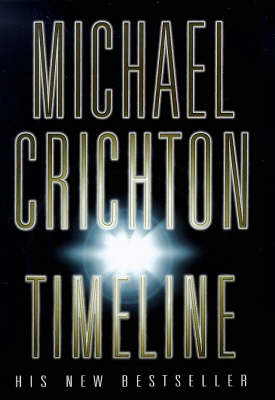Reviewed by Amber (The Literary Phoenix) on
Michael Crichton's books draw me in. There are five pages of references in tiny print at the end of the book - this man does his homework. This one is definitely a favorite just because of the subject matter. There is a warm place in my heart for history, and the idea of time travel (alright, multi-universe jumping) is just so intriguing to me. The Middle Ages are an area of particular interest for me, and so, this book was definitely a favorite.
Oddly enough, I think I benefited from having seen the film before, because as many others have criticized, the characters are so flat. That is a thing with Crichton - he worries about telling the story more than if you relate to the characters. Although the film adaptation was poorly done when comparing it to the source, the characters have more depth and variety and even though some of them were grossly displaced (Chris! They took his name and put it on another character altogether!) having that in the back of my mind made them more likable, and helped submerge me better into the book.
The science in this book was also a little difficult for me to follow. But I don't know if that is a general concern, or based on my personal lack of comprehension.
There was a speech near the end that Doniger was practicing, about modern America and its primary concern being entertainment. It was almost completely irrelevant to the book, but I loved it.
For me, even already knowing the ending, this was a very hard book to put down. I've gotten so jaded by poor or cliched writing lately, complete engrossment in a book has been a rare pleasure.
Reading updates
- Started reading
- 13 November, 2014: Finished reading
- 13 November, 2014: Reviewed
